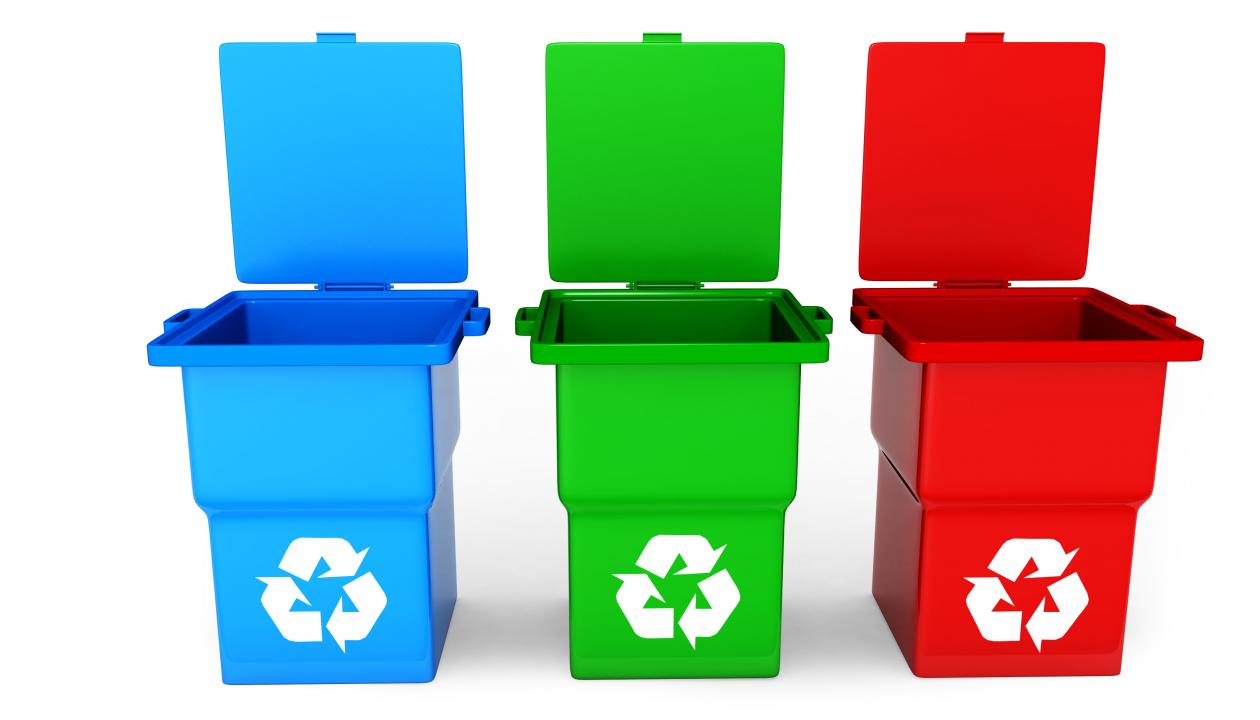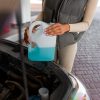- Empty cart.
- Continue Shopping
What Belongs in which Recycling Bin? Complete Guide

Recycling is a crucial step towards protecting our planet and preserving its resources for future generations. By properly recycling waste materials, we can reduce our impact on the environment, save energy, and minimize the amount of waste that ends up in landfills.
However, with so many different types of materials and recycling guidelines, it can be confusing to know what belongs in which recycling bin. If you’re looking for a durable and efficient recycling bin, the Slim Jim Recycle Bin is a great option. It’s made from high-quality materials and designed to withstand heavy use in busy environments.
In this complete guide, we will break down the different types of materials that can be recycled, how to recycle them properly, and provide additional tips to help you make a positive impact on the environment.
-
Paper and Cardboard Recycling
Paper and cardboard are some of the most commonly recycled materials. You can recycle newspapers, magazines, office paper, cardboard boxes, and other paper products. However, not all paper and cardboard are created equal. Avoid recycling paper products that are contaminated with food waste, such as greasy pizza boxes, as these can’t be recycled.
When recycling paper, it’s important to remove any plastic windows or stickers on envelopes, cardboard boxes, or other paper products before recycling. Flatten any cardboard boxes to save space in the recycling bin, and make sure the bin is clean and dry before putting paper and cardboard in it.
-
Plastic Recycling
Plastics can be tricky to recycle because not all plastics can be recycled. Most recycling programs only accept plastics with a recycling symbol on the bottom that are numbers 1, 2, or 5. These include plastic water bottles, milk jugs, and plastic bags. However, it’s important to note that not all recycling programs accept plastic bags, so it’s best to check with your local recycling program.
It’s also important to make sure that plastic containers are clean and empty before recycling them. If plastic containers have food waste or residue, they may contaminate the entire recycling bin, making it difficult to recycle other materials in the bin.
-
Metal Recycling
Metal products can be recycled, including aluminum cans, steel cans, and tin cans. Make sure to rinse any metal cans before recycling them to remove any food residue. Also, make sure to remove any plastic or paper labels on metal cans before recycling them. The Slim Jim Recycle Bin is available in a variety of sizes and colors, making it easy to find the perfect fit for your space. Plus, its slim profile allows it to fit in tight spaces while still holding a large amount of recyclables.
-
Glass Recycling
Glass can be recycled, including glass bottles and jars. Make sure to remove any lids or caps before recycling glass products. Rinse glass containers before recycling to remove any food residue. The flip top plastic bin is a convenient and hygienic option for recycling or disposing of small items in a clean and efficient manner.
-
Electronics Recycling
Electronics can be recycled, including cell phones, computers, and other electronic devices. However, it’s important to make sure that electronics are properly disposed of as they can contain harmful materials. Check with your local recycling program or electronics store to see if they accept electronic devices for recycling.
-
Batteries Recycling
Batteries can be recycled, including household batteries, rechargeable batteries, and car batteries. However, it’s important to make sure that batteries are properly disposed of as they can contain harmful materials.
Check with your local recycling program or battery store to see if they accept batteries for recycling. The 4 In 1 Recycle Bin is a versatile solution that makes it easy to separate different types of recyclables, such as plastic, glass, paper, and aluminum, in a single, compact unit.
-
Composting
Composting is a way to recycle food waste and yard waste into nutrient-rich soil. Food waste that can be composted includes fruit and vegetable scraps, eggshells, and coffee grounds. Yard waste that can be composted includes grass clippings, leaves, and tree branches.
When composting, it’s important to keep meat, dairy, and oily foods out of the compost pile. These items can attract rodents and other animals and can cause the compost pile to smell bad.
Additional Tips:
Here are some additional tips and information to help you recycle correctly and make a positive impact on the environment:
- Know your local recycling guidelines: Recycling guidelines can vary from region to region, so it’s important to know what is accepted in your area. Contact your local recycling program to find out what you can and cannot recycle.
- Don’t bag your recycling: Plastic bags can cause problems at recycling facilities, so it’s best to avoid putting your recyclables in plastic bags. Instead, put your recyclables directly into the recycling bin.
- Reduce your waste: One of the best ways to reduce the amount of waste that you generate is to avoid using disposable products. Use reusable bags, containers, and water bottles instead of single-use items.
- Buy products made from recycled materials: By buying products made from recycled materials, you are supporting the recycling industry and helping to create a demand for recycled materials.
- Recycle electronics properly: Electronic devices can contain harmful materials, so it’s important to recycle them properly. Look for a recycling program or electronic store that accepts electronics for recycling.
- Be mindful of what you throw away: Before you throw something in the trash, think about whether it can be recycled or reused. Even small changes can make a big difference over time.
- Educate others: Spread the word about recycling and encourage others to recycle. By working together, we can make a positive impact on the environment.
In addition to these tips, it’s important to remember that recycling is just one part of a larger effort to protect the environment. To make a real impact, we need to reduce our consumption, use resources more efficiently, and find ways to live more sustainably. By working together and making small changes in our daily lives, we can create a cleaner, healthier planet for future generations.
Wrapping Up:
In conclusion, recycling is an important part of reducing our impact on the environment. By recycling paper, plastic, metal, glass, electronics, and batteries, we can conserve natural resources, reduce greenhouse gas emissions, and create new products. By composting food waste and yard waste, we can create nutrient-rich soil for plants and gardens.
Remember to check with your local recycling program for specific guidelines on what can be recycled in your area. By using a Slim Jim Recycle Bin, you can make recycling more accessible and convenient for your employees, customers, or residents. With its sturdy construction and versatile design, it’s a smart investment for any business or organization looking to improve their recycling efforts.







